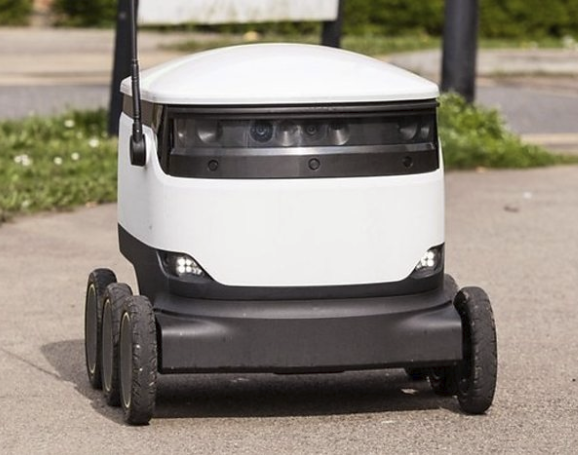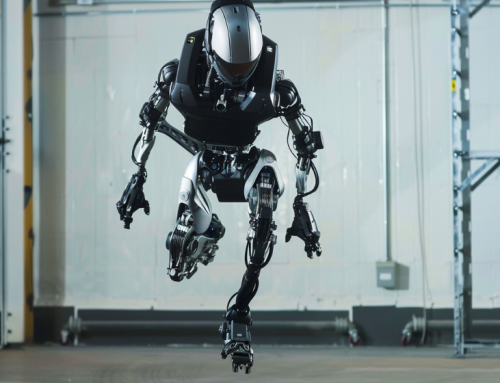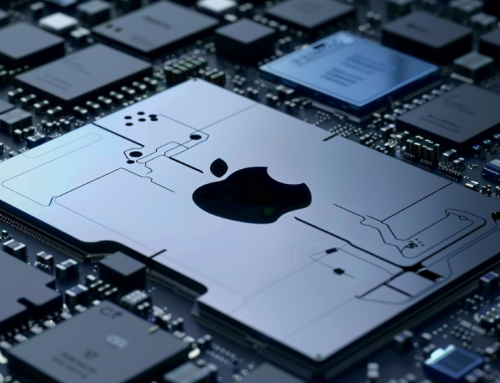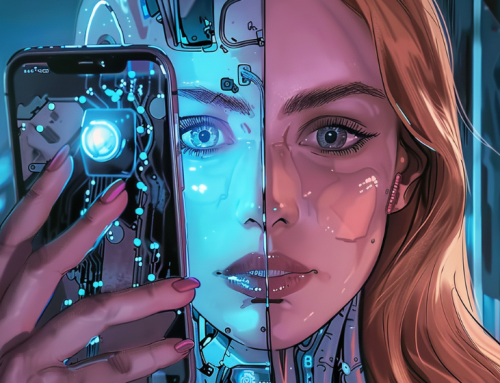Mobile Robots, AI Hiring Programs Can Impair Access for Disabled
Disability groups have lauded the potential benefits of autonomous cars for disabled people, for whom transportation has been a challenge because of visual, hearing and other bodily impairments that make using standard vehicles difficult or impossible. In addition, computer tools have made it easier for people with an array of disabilities to work and communicate.

A Starship mobile robot blocked the way of a disabled woman piloting a wheelchair across a street and wouldn’t yield, causing her distress and making her trip less safe. (Image: Starship Technologies)
But not all new technology that improves convenience for most people’s lives is without negative consequences, especially when it comes to disabled people.
According to a recent story in the Financial Times, recent algorithms have discriminated against disabled people in hiring, run them over in computer models of autonomous vehicles by not recognizing that they can move backwards in wheelchairs and have even had robotic delivery drones refuse to move out of the way for wheelchairs.
Essentially, AI is as ignorant as many people are about the challenges of people with mobility and other impairments.
“As AI is introduced into gadgets and services, stories of algorithmic discrimination have exposed the tendency of machine learning to magnify the prejudices that skew human decision-making against women and ethnic minorities, which machines were supposed to avoid,” said the ft.com story. “Equally rife, but less discussed, are AI’s repercussions for those with disabilities.”
According to Jutta Treviranus, director of the Inclusive Design Research Centre at OCAD University in Toronto, the pattern-matching protocols of AI are inherently biased against anything that’s not considered “the norm.” In a project for the Ontario Ministry of Transportation as far back as 2015, she showed a video of a friend propelling her wheelchair backwards towards early-stage machine-learning models for autonomous cars.
“When the models ran her friend over, the researchers exposed them to more training data − and they ran her over again. She concluded that the AI had confidently predicted from studying typical wheelchair behavior that wheelchairs go forwards. ‘We have created machines that cannot cope with diversity and complexity,’ she says.”
According to a report published in November by AI Now Institute at New York University, remote video interviewing technologies sold by HireVue and other providers to big corporations also discriminated against disabled job prospects.
The story details half a dozen examples of AI prejudice, icluding Captchas and learning systems. A Microsoft research paper outlining several of the foibles of AI regarding disability access provide insight into the problem.
read more at ft.com







Leave A Comment